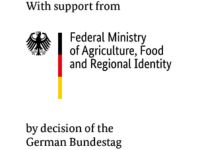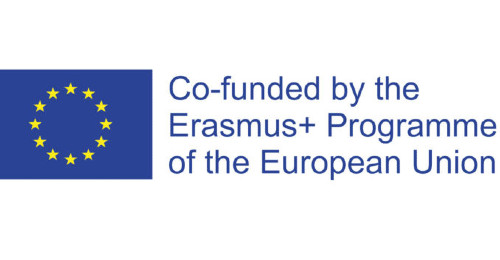This Website uses cookies to improve your visit on our website. More Info

Why this role matters
"As Ombudsperson, I am committed to safeguarding good scientific practice because research quality and integrity matter more than ever in times of misinformation and eroding public trust in science. Supporting a culture of responsible research at Munich Business School is both a professional responsibility and a personal motivation."
Who can get in touch?
"Anyone who has questions or concerns about good scientific practice at MBS can contact me or my deputy in confidence—whether they are faculty members, staff, students, or external partners. We offer independent advice, help clarify situations, and work toward fair solutions in accordance with the DFG Code of Conduct for Good Scientific Practice."
The MBS Research Framework is designed to reflect the complexities of today’s interconnected world. Research at Munich Business is guided by global megatrends and specific research areas, it also explores the research subject dimension.
Research focuses on these three global megatrends:
A list of contributions and publications on this topic is being compiled.
A list of contributions and publications on this topic is being compiled.
A list of contributions and publications on this topic is being compiled.
These three research areas are at the center of research at MBS:
A list of contributions and publications on this topic is being compiled.
A list of contributions and publications on this topic is being compiled.
A list of contributions and publications on this topic is being compiled.
The research subject dimension of the Research Framework explores dynamic interactions between individuals, organizational structures, and broader societal impacts. This aligns with contemporary business challenges and opportunities, emphasizing the importance of human-centered approaches in business practices
A list of contributions and publications on this topic is being compiled.
A list of contributions and publications on this topic is being compiled.
A list of contributions and publications on this topic is being compiled.
![[Translate to Englisch:] MBS European Center for Social Finance [Translate to Englisch:] MBS European Center for Social Finance](/fileadmin/user_upload/forschung/Logo_ECSF.png)
The European Center for Social Finance (ECSF) at Munich Buisness School was founded in autumn 2018. The aim of the institution is to bundle MBS' expert knowledge in the fields of social entrepreneurship and social finance and to provide a platform for applied research in these areas. The European Center for Social Finance is headed by Dr. Barbara Scheck, Professor of Entrepreneurship at MBS and proven expert in Social Entrepreneurship. The Center is dedicated to academic research, business intelligence and technical support in the field of social finance and has a wide range of proven tools and experience in working with relevant stakeholders in the social finance sector. The European Center for Social Finance maintains close relationships within the European Community and works with experts across the continent.


Objectives:
The BESSER.ESSEN project aims to make a significant contribution to achieving the United Nations Sustainable Development Goals (SDGs) in Germany by addressing key targets:
Partners: Technische Hochschule Nürnberg Georg Simon Ohm (THN), Munich Business School (MBS), Forum Ökologisch-Soziale Marktwirtschaft e.V.
Industry partners: Studierendenwerk Erlangen-Nürnberg, OMMAX GmbH, Tress Lebensmittel GmbH & CO. KG, Institut für Lebensmittelkultur Otto Geisel GmbH, TressBrüder Gastronomie GmbH, Hotel Luise GmbH
Time: 11/2025 - 10/2028
Funding: Bundesministerium für Landwirtschaft, Ernährung und Heimat
MBS Researcher: Prof. Dr. Sophie Hieke
Research assistant: Cara Blaschke
Further information can be found on the project website: Website still under construction (link to follow)
Partners: European Center for Social Finance (DE), Synergy Ltd (CY), Coopération Bancaire Pour L’Europe (BE), Servizi ed Investimenti Innovativi Srl (IT), Gestión Estratégica e Innovación SL (ES). Associated partner: Munich Business School (DE)
Time: 09/2024 – 08/2026
Funding: European Commission, Erasmus+ Program, TEUR 250
MBS Researchers: Dr. Giulia Parola, Prof. Dr. Barbara Scheck
Further information can be found on the project website: https://nextgensmes.eu/
Partners: Technical University of Munich (DE), Hochschule München University of Applied Sciences (DE), Hochschule Landshut (DE). Associated partners: Munich Business School (DE), Universität der Bundeswehr München (DE).
Time: 03/2022 – 02/2026
Funding: Bayerisches Staatsministerium für Wissenschaft und Kunst, TEUR 2.388
MBS Researchers: Prof. Dr. Nadine Chochoiek
The project is a collaboration between Munich Business School, Hochschule Landshut, and the University of the Allied Forces Munich (the coordinating institution). The project team includes Prof. Dr. Ellen Schmid and Dr. Melanie Vilser (Bundeswehr University), Prof. Dr. Markus Böhm (Landshut), as well as Prof. Dr. Alexandra Hauser and Maxi F. Holzapfel (MBS).
Through interdisciplinary collaboration among experts in psychology, organizational development, and informatics, ElDiCo aims to generate groundbreaking insights and practical solutions for the challenges of the digital work environment. The project’s goal is to fully harness the potentials of digital leadership while minimizing potential risks, thereby enabling sustainable and successful collaboration in the digital era.
The project will run for three years to 2027 and is funded by the Bavarian Research Institute for Digital Transformation (bidt).
More information can be found on the ELDiCo website, on LinkedIN or in the new ELDiCo-Podcast.

The project is an international collaboration involving the Munich Business School, EXEO Lab (Italy), MICC Maltese-Italian Chamber of Commerce (Malta), GEINNOVA (Spain), brainplus (Austria), and WAE We Are Entrepreneurs (Denmark).
Together, the partners of STAY OK are creating a comprehensive training and development course for both small business leaders and trainers, tutors, and mentors. Additionally, STAY OK supports the VET community and delivers an innovative Digital Tool for self-assessment of staff well-being and identifying corrective actions.
The project will run for two years until autumn 2025 and is funded by the EU commission with 250,000 Euros within the framework of the Erasmus+ program.
More information can be found on the STAY OK website.

The project is an international cooperation of MBS with three universities (ESSEC Business School in France, TED University in Turkey, Universitat Ramon Llull Fundacio in Spain) and the Impact Hub in Austria.
The research focuses mainly on social impact measurement, impact investing and the legal framework for social enterprises as well as impact-oriented enterprises.
The project will run for three years to 2025 and is funded by the EU Commission with 400.000 Euros within the framework of the Erasmus+ program.

MBS’ partners on this project are the Julius Maximilian University of Würzburg (Germany), UPF Barcelona School of Management (Spain), Palacký University Olomouc (Poland), Nova School of Business and Economics (Portugal), Impact Centre Erasmus (Netherlands), and PIMEC, Catalonia’s Association of Small and Medium Enterprises (Spain). Konstantin Mudrack and Prof. Dr. Christian Schmidkonz (both MBS) are responsible for project management and academic input respectively.
Together, the partners are designing courses on all aspects of Conscious Business Education, including conscious leadership, conscious marketing, impact entrepreneurship, an ethical approach to risk management and governance, and many other relevant topics. The project will run for three years until fall 2024 and has been granted around €300,000 of funding by the European Commission as part of the Erasmus+ program.
The course materials will be tested by the participating universities as part of their curricula, presented to lecturers in Business Studies at public and private universities at conferences across Europe (known as “multiplier events”) and further refined in an ongoing process of exchange.
The research project’s stated aim is to train, inspire and motivate lecturers in Business and Economics throughout Europe to adopt elements of the CBE course material in order to change the way the subjects are taught. After all, more conscious business means acting in a more ethical, people-centered, regenerative, inclusive, stakeholder-oriented, and purpose-driven manner.
More information on the launch of the research project can be found on the MBS blog Insights and on Conscious Business Education's website.

The project is being carried out under the leadership and coordination of MBS professors Dr. Patricia Kraft and Dr. Barbara Scheck. Further partners are Institute de Preparation a l'Administration et a la Gestion (France) and the University of New York in Prague, s.r.o. (Czech Republic), the think tank ThinkYoung (Belgium) and the NGOs led by HER (France) and Fondatsiya Bulgarski Tsentar za Gender Izvedvaniya (Bulgaria).
Pilot projects are being carried out in France, the Czech Republic and Bulgaria, with the goal to enable replication across Europe. The project will run for three years to 2024 and is funded by the EU Commission with approx. 380.000 Euros within the framework of the Erasmus+ program.
More information can be found here EASE website.
Partners: European Center for Social Finance (impact management and research partner, DE), REZOS Brands S.A. (GR), Cresaçor (PT), BB Consulting (SI), The Polish Farm Advisory (PL), ATIS (IT), Regione Siciliana (IT), Meath Partnership (IE)
Time: 10/2021 – 12/2023
Funding: EEA and Norway Grants Fund for Youth Employment, TEUR 1.299
ECSF Researchers: Prof. Dr. Barbara Scheck, Dr. Giulia Parola
For further information, see the project’s website StayOn.

Partner: Maltese Italian Chamber of Commerce (MT), SYNTHESIS Center for Research and Education (CY), Malta Stock Exchange Institute (MT), Gestión Estratégica e Innovación (ES), Exeo Lab (IT), European Center for Social Finance (DE), Coopération Bancaire pour l’Europe (BE)
Time: 01/2022 – 01/2024
Funding: European Commission, Erasmus+ Program, TEUR 1.299
ECSF Researchers: Prof. Dr. Barbara Scheck, Dr. Giulia Parola.
For further Information, see Beyond Capital.

The aim of this project, funded by the EU Commission, is to increase start-up activities by female students and graduates in African universities from a teaching and research perspective by jointly building knowledge and finding solutions to (gender-specific) challenges.
More information on the launch of the research project can be found on the MBS blog Insights and and on WEMAG's website.
The research project "Young Entrepreneurs Succeed" (YES!) is addressing this issue. It aims to explore the most effective initiatives to support young entrepreneurs and the young unemployed as they enter the labour market. The target group is young people in Greece, Poland, Italy and Spain. Its long-term project objective is to develop a transnational, sustainable, replicable and scalable set of support methods.
The project is funded with € 2.3 million by the EEA and Norway Grants Fund for Youth Employment. Represented by MBS Professor Dr. Barbara Scheck and MBS Research Associate Giulia Parola, Munich Business School is the official expertise project partner of „Trust-based Partnership – Yes!“.
More information can be found on the website of Young Entrepreneur Succeed.
Cooperation partners are Munich Business School (Prof. Dr Barbara Scheck, ECSF), Dr Yiorgios Alexopoulos (Greece), NGEN Impact GmbH (Dr Wolfgang Spiess-Knafl, Austria). The project has a total volume of 2.4 million euros.
2024
Kolbet, A., Schmidkonz, C. (2024). Conscious Leadership in the Generation Z An Analysis of the Expectations of Generation Z towards their (Future) Leaders. Munich Business School Working Paper Series (ISSN 2367-3869), 2024-01.
2023
2022
2021
2020
2019
2018
2017
2016
2014
2013
2012
2011
2010
2009
2008
2007
2006
2005
2004
2003
THE MBS RESEARCH AWARD
The MBS Research Award recognizes outstanding research performance among the faculty of the Munich Business School since 2018. The award criteria include the remarkable quantity and quality of research output publications, excellency in impact and engagement, remarkable contribution to research, but also considers remarkable personal development. The award comes with prize money of EUR 2,500.
